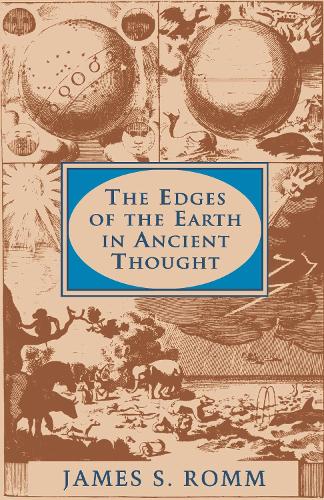
The Edges of the Earth in Ancient Thought: Geography, Exploration, and Fiction
(Paperback)
Publishing Details
The Edges of the Earth in Ancient Thought: Geography, Exploration, and Fiction
By (Author) James S. Romm
Princeton University Press
Princeton University Press
2nd January 1995
United States
Classifications
Professional and Scholarly
Non Fiction
Ancient history
Literary studies: general
History of ideas
809.93591002
Physical Properties
Paperback
247
Width 127mm, Height 203mm
312g
Description
For the Greeks and Romans the earth's furthest perimeter was a realm radically different from what they perceived as central and human. The alien qualities of these "edges of the earth" became the basis of a literary tradition that endured throughout antiquity and into the Renaissance, despite the growing challenges of emerging scientific perspectives. Here James S. Romm surveys this tradition, revealing that the Greeks, and to a somewhat lesser extent the Romans, saw geography not as a branch of physical science but as an important literary genre. The tradition described by Romm emerged in Homer and Hesiod, whose imaginative geography defined the earth by giving it boundaries - the river Ocean, the Pillars of Heracles, and other mythic forms of circumscription. Other Greek authors developed exotic literary landscapes by filling these "limits" with idealized human societies and bizarre or monstrous animal life, while the Romans adapted the concept of perimeters to goals of imperial conquest. As Hellenistic and Roman voyages of exploration failed to confirm the fancied landscapes, the tradition came to be seen as one in which invented narratives had masqueraded as truths. As a result some of late antiquity's most daring innovators seized on geography as a theme for prose fiction, and the explorer's log became an important antecedent of the early modern novel.
Reviews
"An immensely engaging and erudite work, packed full of provocative insights... Romm successfully sorts out for us some of the most complex traditions of ancient geographic literature; and he deserves high marks for doing it in such an intelligent, original, and attractive manner."--T. Corey Brennan, Bryn Mawr Classical Review "Romm's incisive and brilliant analysis of Greco-Roman ideas of earth's geography is grounded in a linguistic interpretation of Greek conceptions of space and boundary... His work captures the imagination as few others have and will provide material for the study of the classical legacy in the shaping of the modern scientific mind for many years to come."--Helen Liebel-Weckowicz, Classical Bulletin
Author Bio
James S. Romm is Assistant Professor of Classics at Bard College.
